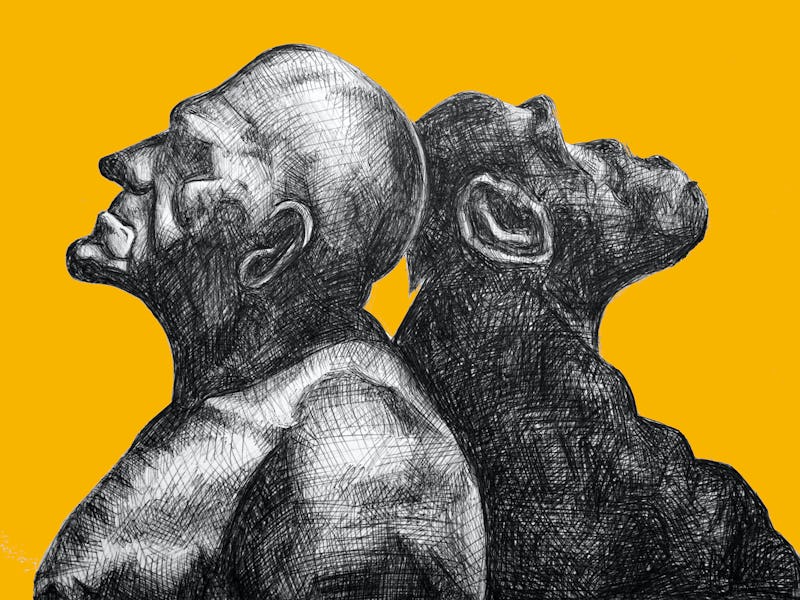Exercise has one overlooked evolutionary benefit for humans
Plus: A “super jelly” defies the laws of physics.

Humans are rare in the animal world because they live much longer after their prime reproductive years have come and gone, thanks to exercise, writes Nick Keppler in today’s lead story:
[E]volutionary biologists and biomedical researchers from Harvard University lay out two theories as to why the physical activity may fuel this longevity. The work suggests humans can capitalize on this evolutionary benefit by staying active throughout their lives and taking regular exercise.
I know it’s the holiday season officially, but this sort of suggestion — there’s an evolutionary advantage to exercise all through life — may come at just the right time. There are also plenty of benefits of exercising in cold weather. Keep reading to learn more about this story in this December 1 edition of Inverse Daily.
I’m Nick Lucchesi, an editor here at Inverse. I’m happy to present four stories reported on our editorial staff.
This is an adapted version of the Inverse Daily newsletter for Wednesday, December 1, 2021. Subscribe for free and earn rewards for reading every day in your inbox. ✉️
How exercise unlocks human longevity
[By Nick Keppler]
Parents who drop their kids off with grandma while they work the late shift know: Old age comes with a hidden benefit for our species that is very much to our evolutionary advantage. Our elders both care for and teach the young how to survive. Now, a team of evolutionary biologists has a theory to explain humans’ remarkable longevity.
Humans typically hang around for a few decades after we’re done reproducing. We’re not the only creature that does this — orca whales do it, too — yet very few other animals live beyond their reproductive prime as we do, a distinction that has perplexed scientists.
Related:
“Super jelly” defies the laws of physics
[By Bryan Lawver]
Hydrogels are fascinating materials, able to stretch without breaking and absorb vast amounts of liquid.
These unique properties mean hydrogels are used in various products, including wound dressings, diapers, and more. But hydrogels do have their limitations.
From the archives:
Cern. European Organization For Nuclear Research. Geneva, Switzerland.
CERN collider detects neutrino for the first time
[By Sarah Wells]
Millions of barely perceptible “ghost” particles called neutrinos fly through our bodies at every second. With almost zero mass and no charge, these particles don’t even so much as tickle us.
They do, however, hold secrets that could unlock the very origins of matter itself from the universe’s first moments.
These particles are tough to detect, but that could soon be changing. For the first time, scientists have shown that particle colliders, like those at CERN, can be used to detect these apparitions in droves. For the tau neutrino, in particular, this could bring their total detected count from only a handful to thousands.
More out of CERN:
Curiosity captures a stunning view of Mars mountains
[By Passant Rabie]
NASA’s Curiosity rover has gotten pretty familiar with the Martian terrain by now, capturing hundreds of photos of the red planet since it landed on Mars in 2012. But now and then, the rover catches Mars at just the right angles.
Curiosity recently captured a rare panoramic view of Mars’ Mount Sharp. The mission team then turned into a picture-perfect Martian postcard by combining different images and even adding color.
The result is a captivating view of Mars that will make you want to pack your bags and make the 232 million mile trip to the neighboring planet.
More discoveries by the Mars rover Curiosity:
Actor Riz Ahmed marks a birthday today. He’s 39.
- About the newsletter: Do you think it can be improved? Have a story idea? Want to share a story about the time you met an astronaut? Send those thoughts and more to newsletter@inverse.com.
- Notable birthdays: Bette Midler (76), Candace Bushnell (63), Chanel Iman (31), Zoe Kravitz (33), Riz Ahmed (39; pictured above). (Source: AP.)
- Song of the day: “Live Forever” by Oasis